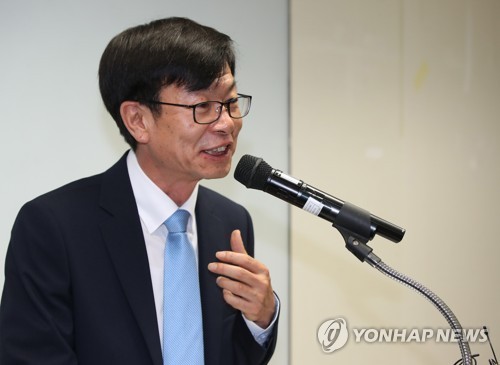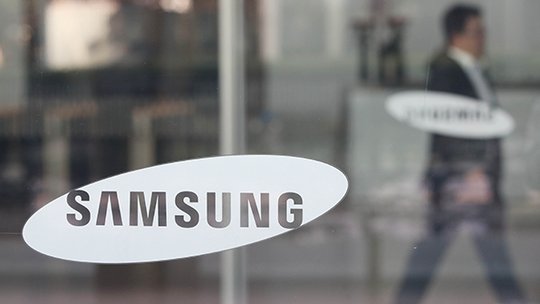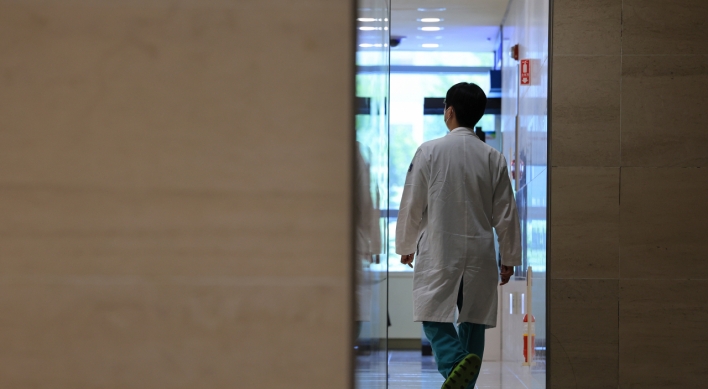What chaebol sniper’s rise as FTC head means for Samsung
Kim’s knowledge of Samsung could put more pressure on its transition, experts say
By Korea HeraldPublished : May 18, 2017 - 16:52
Mixed reactions lingered Thursday in Samsung following the nomination of a chaebol expert, who was at the forefront of attacking Samsung’s three-generation governance structure, to head the nation’s antitrust watchdog.
Kim Sang-jo, an economics professor at Hansung University, is a passionate critic of South Korea’s largest conglomerate. He publicly denounced the alleged collusive ties between Samsung and politics at a parliamentary hearing late last year to question chaebol owners, including Lee Jae-yong, the heir apparent of the tech giant.
He also reportedly was the secret weapon of the special counsel -- who was investigating those collusive ties -- as he had outlined a convincing argument to arrest Lee, based on his in-depth knowledge of Samsung’s succession scenario.
Kim Sang-jo, an economics professor at Hansung University, is a passionate critic of South Korea’s largest conglomerate. He publicly denounced the alleged collusive ties between Samsung and politics at a parliamentary hearing late last year to question chaebol owners, including Lee Jae-yong, the heir apparent of the tech giant.
He also reportedly was the secret weapon of the special counsel -- who was investigating those collusive ties -- as he had outlined a convincing argument to arrest Lee, based on his in-depth knowledge of Samsung’s succession scenario.

“Samsung may feel considerably uncomfortable,” said Park Ju-gun, CEO of CEOScore, a local corporate tracker, of Kim’s rise as the chairman of Fair Trade Commission, nicknamed the market police. “The possibility is high for Kim to interfere in (Samsung’s) governance structure and to support legislation of related bills.”
Samsung Electronics has already sent the market a clear signal that it would take shareholder value more serious than before. The crown jewel of the nation’s largest conglomerate has recently ditched treasury stocks worth 45 trillion won that were once considered as critical tool for strengthening Lee’s grip on the company.
Kim also recently spoke highly of Samsung’s unusual move, saying that a significant change within the conglomerate has been made toward fair trade and economic democratization.
But Samsung may face more risks under the newly launched liberal government as it might question the conglomerate’s governance structure of a financial arm holding a considerable stake in non-financial subsidiaries -- which helped keep the Lee family’s grip over Samsung Electronics, Park of CEOScore explained.
Insiders at Samsung are taking a wait-and-see stance, with some calling Kim a man who understands Samsung better than anyone else.
“Kim has a high understanding of conglomerates and is a realist rather than a radical liberal,” an official said, requesting anonymity. “What he has claimed is that conglomerates should be well monitored and checked, not to dissolve the system of an owner family running the businesses. As long as we abide by the rules and fairly run businesses, it won’t be a problem.”
Since around 1997, Kim has waged war against the group whenever Samsung’s succession and corruption issues broke out.
As then a leading member of a committee at the People’s Solidarity for Participatory Democracy, he led the lawsuits against Samsung Everland and Samsung SDS, which issued convertible bonds and bonds with warrants lower than the market price in 1996 and 1999, respectively.
In 2005, when Samsung Electronics Chairman Lee Kun-hee came under the prosecution’s scrutiny for offering bribes to politicians and prosecutor, Kim slammed Samsung and called for the resignation of then former Vice Chairman Lee Hak-soo.

Despite his passion toward chaebol reform and deep knowledge of the workings of Samsung, professor Chun Sung-in of Hongik University said his new role as the head of the FTC would face limits, both in terms of time and in the extent of authority he could exercise.
“When he was a critic, he cried for a wide range of chaebol reform but his job at the FTC is not a position in which he can do everything he wants to do,” Chun said, adding that his term ends in three years.
But Kim could strengthen the FTC’s role in monitoring Samsung’s transition in its governance structure and the usual practice of its affiliates awarding lucrative contracts to its subsidiaries, he suggested.
Chung Sun-sup, CEO of Chaebul.com, noted that the antitrust agency has not been good at investigating malpractices that do not clearly violate the law but are carried out expediently.
“We can expect from Kim to conduct an intensive investigation or strengthening monitoring system from now on.”
Other top conglomerates also took a cautious approach as the nominee told reporters Thursday that he would look more on wealth concentrated under the control of the top four chaebols. The four major chaebol -- Samsung, Hyundai Motor, SK and LG --account for two-thirds of assets held by the nation’s top 30 conglomerates.
“Kim’s appointment may not be hailed by conglomerates for the moment,” said an anonymous source from Hyundai Motor, the nation’s largest automaker. “But, if the firms are reformed in a more transparent and positive way, this can benefit them for a long term. So there must be a positive side.”
By Cho Chung-un and Shin Ji-hye
(christory@heraldcorp.com) (shinjh@heraldcorp.com)
-
Articles by Korea Herald








![[Kim Seong-kon] Democracy and the future of South Korea](http://res.heraldm.com/phpwas/restmb_idxmake.php?idx=644&simg=/content/image/2024/04/16/20240416050802_0.jpg&u=)










![[Today’s K-pop] Zico drops snippet of collaboration with Jennie](http://res.heraldm.com/phpwas/restmb_idxmake.php?idx=642&simg=/content/image/2024/04/18/20240418050702_0.jpg&u=)